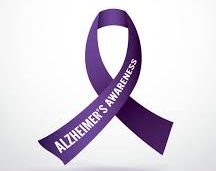
by Darra McMullen, Women’s Health Network Writer/Researcher
With the roughly five to six million people already suffering from Alzheimer’s disease expected to increase in number by the many millions over the next two decades, the terrible mind-wasting disease deserves close scrutiny, especially because, currently, there is no cure or even effective treatment for the illness. Alzheimer’s disease is presently 100% fatal.
There are some steps we can take to delay onset or perhaps avoid the ailment altogether, but none of these preventive steps is a guarantee of success against developing Alzheimer’s.
Before we look at “brain healthy” habits, let’s focus momentarily on the phases of Alzheimer’s disease so that we might recognize properly the symptoms in loved ones or even ourselves.
To keep things simple to understand, we could break down the stages of Alzheimer’s into four groupings: very mild, mild, moderate, and severe. An Alzheimer’s patient will progress through each phase, ultimately ending in death. The “average” life expectancy between time of clinical diagnosis and death is seven years, but that time frame can be longer or shorter, depending on where in the disease process the person was when diagnosed and how well he/she is cared for by self and others.
During the very mild phase, which may last from a few months to four years, the patient may forget how to drive to places that they have visited often, and the patient may experience changes in judgment, multitasking, or special abilities, as well as the ability to come up with some common words.
In the second, or mild phase, a patient can often still carry out daily activities, but will need assistance. Dressing, cooking, shopping, or driving to familiar stores may still be possible, but the patient may need help with making lists for shopping or a plan for cooking, etc. Mood and personality changes are common at this point, as is a lack of emotional engagement, which some experts refer to as a “flattening” of emotion or personality. Remembering dates, including the present one, may also start to slip away.
During the third, or moderate stage, of the disease, all the aforementioned problems worsen. More assistance will be needed for the patient for daily living issues, such as shopping, cooking, or dressing. Behavioral changes, such as bad temper or voicing suspicion about others and their motives are also common. Patients in the third stage of Alzheimer’s may remember personal information, such as home address or the names of loved ones, at some times but not at other times.
Finally, the fourth, or severe stage of Alzheimer’s disease is marked by the serious inability of the patient to function on his or her own. Patients will need full-time care and will be unable to bathe or use the bathroom without help. During this stage, speech breaks down, as does the ability to recognize family members. Long-term memory loss also occurs. Patients may forget their former professions or schools they attended.
As the brain continues to fail, its control over the body worsens. The immune system becomes weaker and less well organized. The most commonly occurring event prior to death is infection. The body simply becomes too frail and the immune system too weak to fight off infection in a stage four Alzheimer’s patient.
Is there any good news to report about brain health? Yes, there is, definitely. There is much we can do to keep our brains sharp and functioning well for as long as possible. Examine and follow the steps below to up your odds of delaying or avoiding Alzheimer’s disease.
(1.) Feed your brain. Eat more fruits and vegetables, especially leafy greens or fruits and veggies rich in antioxidants.
(2.) Work your body. Do what you can, such as walking 30 minutes a day, to keep both body and mind active. If you can fit in a full exercise program, you’ll be so much the better for it. If not, do whatever physical exertion you can manage.
(3.) Jog your mind. Read, write, play games, learn new things, do crossword puzzles, take a class, or do other mental activities that appeal to you.
(4.) Connect with others. Be social, converse, volunteer, join a club, professional organization, or political or religious group that “speaks” to your interests.
(5.) Protect your brain. Take precautions against head injuries. More evidence accumulates, indicating that head injuries in the past put victims at greater risk for various dementias in the future. Use your car seat belts, and also wear helmets when participating in dangerous job related or recreational activities. Additionally, avoid unhealthy habits that damage brain cells, such as smoking, excessive drinking, or abusing drugs.
(6.) Various studies point to a relationship between poor sleep and cognitive decline and Alzheimer’s disease. Sleep apnea sufferers are known to have an especial risk for memory problems and other types of cognitive impairment due to their brains being deprived of oxygen several times each night while sleeping.
One of the more interesting studies to come to the public’s attention showed the importance of doing at least some side sleeping each night. Sleeping on the side, left or right, has been shown to do a better job of clearing protein build-up in the brain than either back or stomach sleeping.
Getting the recommended 7 – 9 hours of sleep per day is also important to both everyday mental clarity and to overall brain health in the future.
(7.) Finally, stay calm and in a positive mindset as much as possible. Stress, depression, and other emotional problems are known to contribute to dementia risk. Treat mental health problems promptly should they occur, and be supportive of others struggling with mental health issues. A positive attitude is good for the brain, the body, and other people.
